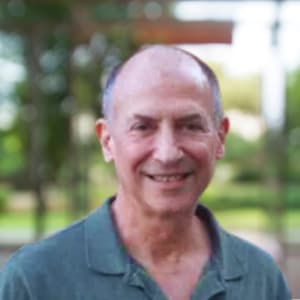- Long COVID has opened a window into ME/CFS pathophysiology, revealing shared immunologic risk factors, mitochondrial dysfunction, and mast cell activation
- Post-exertional malaise remains a central challenge for practitioners, underscoring the need to pace patients carefully, limiting the risk of triggering symptom relapse
- The septet model provides practical treatment for dysautonomia, infections, immune issues, and neuroinflammation
Day 1 Curated Lineup
Long COVID and the Chronic Fatigue Connection (70 min)
Paul Anderson, NDBrain-Gut Connection in Long COVID Recovery (50 min)
Peter Kan, DC, DACNB, FAAIMLong COVID in Women: Hormonal and Autonomic Effects (62 min)
Jessica Drummond, DCN, CNS, PT, NBC-HWCPromising Long COVID Treatment Trials (60 min)
Gez MedingerME/CFS Research and Treatment Insights (51 min)
Patrick UssherThe Septad Model for ME/CFS and Long COVID [PRO LEVEL] (52 min)
David Kaufman, MDDay 1 - Bonus Content
How to Diagnose Long COVID (37 min)
Nafysa Parpia, NDME/CFS Frequently Asked Questions (7 min)
Jamie Kunkle, NDLong COVID Frequently Asked Questions (8 min)
Jamie Kunkle, NDAbout the Expert

David Kaufman, MD
WebsiteDr. Kaufman completed his Internal Medicine Residency training at St. Vincent’s Hospital and Medical Center in New York City. He began his Internal Medicine practice in Greenwich Village in NYC just as the epidemic that came to be known as HIV/AIDS exploded. With St. Vincent’s at the epicenter of this outbreak, he became deeply involved in the care of HIV positive patients and in the research aimed at discovering ways to treat both the opportunistic infections they were dying from and the virus that was causing the destruction of their immune systems.In 2017, he opened a new clinic, the Center for Complex Diseases, with a focus on patients suffering from ME/CFS, Dysautonomia, Autoimmune Diseases, and Chronic Infectious Diseases including Tick borne diseases, Small Intestine Bacterial Overgrowth Syndromes, and Mast Cell Activation Syndrome. He is a member of the ME/CFS Collaborative Research Center at the Stanford University Genome Technology Center and an active participant in several national clinician networks that focus on ME/CFS, Mast Cell Activation Syndrome, and Autoimmune Disease.












